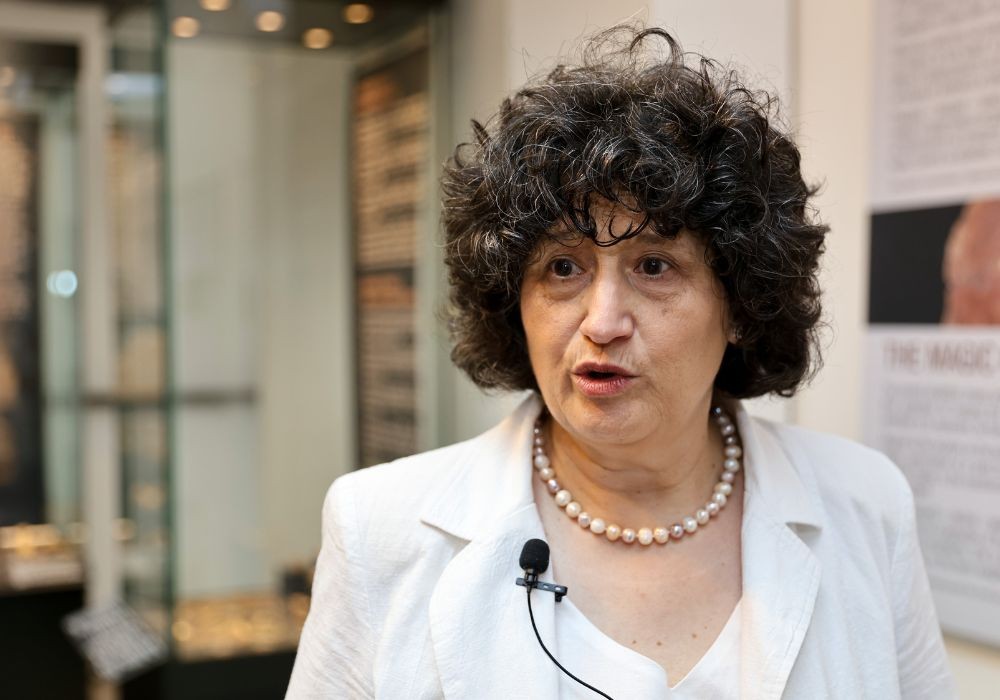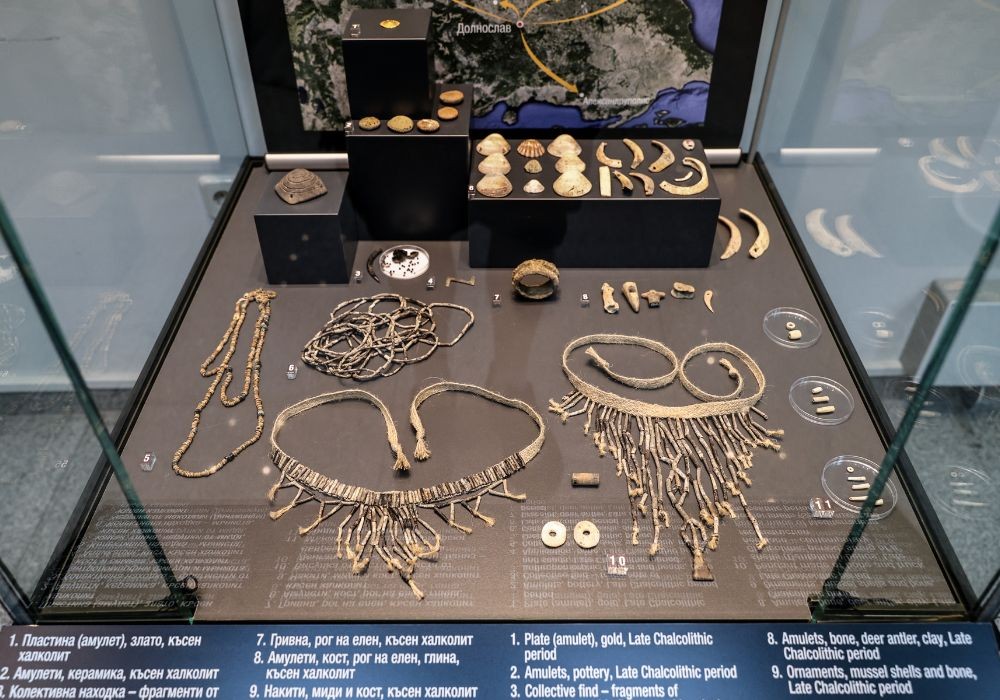With more 40 thousand archaeological sites and artifacts, Bulgaria is a true open-air museum. In terms of the number of finds, this country ranks third in the world after Italy and Greece. From the Neolithic, eight millennia ago, to the late Middle Ages, these lands have been a crossroads of peoples and civilizations that have left priceless treasures. Today, Bulgarian archaeologists breathe life into the past with every unearthed piece of history.

2024 was very successful year with significant artifacts from all periods. The most spectacular ones are presented within the framework of the exhibition "Bulgarian Archaeology 2024" at the National Archaeological Institute with Museum on the occasion of the Day of Archaeologists, marked on February 14 since 1970. We talk about the challenges of this noble profession with Rositsa Mitkova – head of the "Prehistory" fund at the Regional Archaeological Museum Plovdiv, who has dedicated her entire life to archaeology.

"I'll start first with the romantic idea of people about the work of archaeologists. Everyone thinks and sees only what is on the surface - the discoveries. But to get there, we are forced to go a significant way in our professional development. For me and my colleagues archaeology is a way of life. It requires enormous physical effort in rain, in snow, in the cold. Not everyone could withstand it. But we are driven above all by the vocation and love for the profession," Mitkova tells us.
Bulgarian archaeologists, museum workers and scientists continue to research and preserve our cultural and historical heritage with great dedication, despite the disdainful comments of some politicians that they were "dusting museums" and therefore their salaries would not be raised. They not only discover and preserve priceless artefacts, but actively present them to the world through publications, exhibitions, conferences and every day bring new finds into the museum archives, ensuring that Bulgaria's rich history will be passed on to future generations.

Their activity is not just work, but a mission worthy of respect, seemingly not sufficiently appreciated by society.
"Our salaries are significantly lower than those of teachers, but because we are a small guild and do not protest so actively, our voice remains unheard. Our forms of protest are more passive. Whenever there is a need for someone to present a city or region, they turn to us. But when we need help, we are forgotten," Rositsa Mitkova adds with bitterness.
Due to ambiguities in the legislation, Bulgarian archaeologists often face a negative attitude from business and investors. This has led to protests and even incidents, such as cut car tires, etc.:
"We fulfil our obligations imposed by the Cultural Heritage Act, but not everyone understands it. The law has its own issues - if a person finds something on their own land, they are obliged to finance the archaeological works and then the finds become state property. This leads to opposition because not every entrepreneur is willing to report an archaeological site on their property. In this case, everything depends on their conscience. Sometimes significant discoveries sink into obscurity or are destroyed. Perhaps the state should take responsibility and support owners who cannot finance the archaeological works," Rositsa Mitkova says and in conclusion wishes her colleagues a successful season with memorable discoveries and many happy moments.
Publication in English: Al. Markov
Photos: Pexels, NAIM, BTA
On May 10 and 11, the interactive science and technology centre "TechnoMagicLand" at Sofia Tech Park will host a national Rubik's Cube speed-solving competition . The event is part of the official calendar of the World Cube Association (WCA) and is..
The "Roses of Bulgaria" festival will be held at the Museum of Emigration in Sao Paulo, Brazil on May 10. The cultural event is organized by the Bulgarian School in Sao Paulo, jointly with the Embassy of Bulgaria in Brazil and at the initiative of the..
The spring St. Nicholas Day gathered hundreds of Burgas residents at Troikata Square , where cooks offered delicious fish soup, mussels, paella and pizza with octopus, reports BNR - Burgas. The feast in honour of the celestial patron saint of..
There is a special workshop for pottery - of the royal kind – used by the boyar families from the time of the Second Bulgarian Kingdom (12 th – 14 th..
In the early 1960s, it was concluded that Bulgaria’s water resources were insufficient to meet the needs of agriculture. As a result, large-scale..
Bulgarian students from both Bulgaria and the USA embarked on a journey to trace the history of Bulgarian-Americans, spending two years researching the..

+359 2 9336 661
